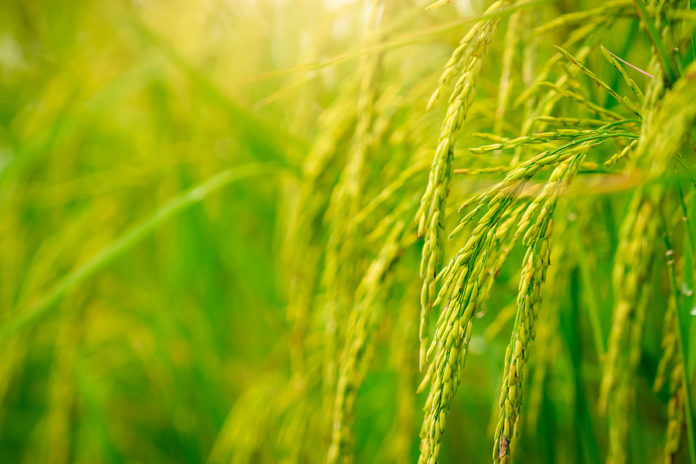
Digital solutions grow ROI & strengthen F&B-farmer collaboration
By Amit Noam, COO of Agritask
This is the goal: Increase knowledge-sharing to improve yields, minimize environmental impact, maximize sustainability, and ensure that everyone in the supply chain wins – from smallholder farmers to F&Bs to consumers.
To that end, most food and beverage corporations have already invested millions in R&D and digital innovations to resolve major food production issues. However, many of the benefits have not yet reached the individual smallholder-farm level, which would further stabilize the F&B supply chain.
Three ways F&Bs can deliver digital transformation to smallholder farms
- Advanced, yet affordable, IoT, connectivity, and mobile solutions help smallholder farmers in remote areas more easily capture data, increasing visibility for F&Bs.
- Sensors and an easy-to-use agronomic platform – bolstered by automated and continuously updated images of crop development – facilitate collection of soil, moisture, temperature, fertilizer usage, and other data, allowing F&Bs to better predict supply.
- Wi-Fi or mobile technology conveys all this information to a cloud-based data store, while an agronomic intelligence platform provides comprehensive analyses of the information – allowing for immediate action by the smallholder farmers, minimizing waste and increasing sustainability – and stability of the supply chain.
Strengthening F&B-farmer partnerships through data-focused solutions
Farmers’ ability to collect and analyze data to receive actionable, yield- and profitability-improving insights is just one benefit. Just as important is smallholder-farmer-to-F&B data collaboration and smooth working relationships.
F&B analysts can use the smallholder farmer’s data to develop customized models to improve overall practices – simultaneously achieving an efficient, maximum-yielding supply chain and increasing compliance with ESG practices.
The advantages of data for F&Bs
The use of smallholder farms’ data stores to deploy advanced technologies:
- Strengthens F&Bs’ communication with their smallholder farmer suppliers throughout the entire agricultural season, from planting to crop monitoring to harvesting
- Allows F&Bs to predict and track production, so they can determine what type of yields they will have in terms of timing and quality and can better plan for the next farming seasons
- Helps F&Bs respond more quickly to lower or poorer-quality yields, giving them more time to deploy other options so they can maintain their commitments to the other components of the supply chain, as well as provide real-time advice to smallholder farmers on how to address yield/quality issues
- Offers F&Bs a more accurate picture of production costs, ensuring a fair, mutually beneficial price for both seller (smallholder farmers) and buyer (F&Bs) and further maximizing the farmer-F&B relationship
These lead to crucial agronomic insights that can be used to optimize operations across the entire agrifood value chain, ensuring sustainable farming and sourcing practices from sowing to harvest, from farm to factory.
The advantages of an agronomic platform for F&Bs
To appeal to farmers who may be new to technology and intimidated by it, F&Bs can provide them with a simple-to-use agronomic platform. This could prove to be a more practical, more user friendly, and less stressful way for farmers to collect and share information and work seamlessly together with F&B corporations.
An agronomic platform:
- Provides F&B managers with a comprehensive digital infrastructure that facilitates information-sharing between them and smallholder farmers, who may be thousands of miles apart
- Helps F&Bs more easily track and oversee their entire supply chain – giving them up-to-the-minute data on what crops are growing, where, and when
- Enables F&Bs to make the complex and physically distant smallholder farmer-F&B relationship more seamless and the supply chain process more efficient by combining the data collection, data analysis, and communication functions in one platform
- Provides F&Bs the visibility required to give farmers the right guidance and the predictability needed for an optimized supply chain
The advantages of a sustainable solution for F&Bs
Consumers are increasingly adopting sustainable lifestyles and demanding that their F&B providers also set sustainability targets, encourage sustainable farming, and address challenging sustainability issues.
In a McKinsey study of sub-Saharan African farmers that revealed the potential-actual yield gap in smallholder farms, analysts claimed that with the right tools these farmers could easily double their yield without having to increase farming land.
Sustainable agriculture brings soil health, reduced use of pesticides and water, and increasing yields and profits for both F&Bs and smallholder farmers.
All this can be achieved with:
- A unified mobile app – Helps F&B agronomists and other F&B stakeholders to offer the right advice and assistance by enabling farmers to instantly report data from the field via the app.
- A single data-led platform – Strengthens F&B-smallholder farmer collaboration by sharing new or best farming practices, techniques, and technologies
Five ways F&Bs and smallholder farmers have created sustainable agriculture together
Many global brands have partnered with their smallholder farmer/grower suppliers to ensure social and environmental sustainability while optimizing the supply chain.
- Nestle, which has budgeted CHF1.2B to build regenerative agricultural processes by 2025, providing technical assistance and financial support to smallholder farmers.
- Mondelez, which has invested in a Global Center for Sustainable Cocoa Farming Solutions in Indonesia to focus on sustainable, scalable cocoa farming practices
- Starbucks, which has donated 30 million trees to coffee farmers (aiming to quadruple this to 100 million by 2025) as part of a $50M commitment to a Global Farmer Fund
- PepsiCo, which has launched an agriculture strategy focusing on regenerative farming practices and empowering farming communities; and more.
F&Bs, ensure the future of food production by bringing the digital revolution to smallholder farms. Help them turn data into actionable insights to achieve efficient, sustainable agriculture – while maximizing your returns.
 Amit Noam, COO of Agritask, whose agronomic intelligence (AgI) platform powers advances for Food & Beverage, farmers, and others in the agrifood supply chain. Noam has extensive management experience across industries, especially in roles focusing on using data to direct company strategies. www.agritask.com
Amit Noam, COO of Agritask, whose agronomic intelligence (AgI) platform powers advances for Food & Beverage, farmers, and others in the agrifood supply chain. Noam has extensive management experience across industries, especially in roles focusing on using data to direct company strategies. www.agritask.com







